Difference between revisions of "Wikispooks:Glossary"
Jump to navigation
Jump to search

m |
m (Text replacement - "WikiSpooks" to "Wikispooks") |
||
| (50 intermediate revisions by 2 users not shown) | |||
| Line 1: | Line 1: | ||
| − | + | {{HelpSection|image=Glossary.png}} | |
| − | + | '''Our glossary''' explains some key terms which may assist new readers. Some are Wikispooks coinages, some in common usage have substantially different meanings when used on Wikispooks in anything other than quoted form. Some, such as the [[deep state]], are coinages which Wikispooks has helped to publicise. The descriptions below explain the meanings of a set of important words as used on Wikispooks in their unquoted form - i.e. as distinct from their use in 3<sup>rd</sup> party produced [[document]]s. For more words and phrases, see [[Peter Dale Scott]]'s [[Document:Glossary of Open Politics|Glossary of Open Politics]]. | |
| − | + | {{SMWData | |
| − | + | |constitutes=glossary | |
| − | + | |description=A list of key words and phrases which are central to the Wikispooks mission and which may be unfamiliar, or are used here in unfamiliar ways. | |
| − | + | }} | |
| − | + | {{#ask: [[GlossaryDescription::+]] | |
| − | + | |format=broadtable | |
| − | + | |align=center | |
| − | + | |headers=plain | |
| − | + | |default={{WSERROR}} | |
| − | + | |?Has image = | |
| − | + | |?GlossaryDescription = <big>Explanation</big> | |
| − | + | |mainlabel= <big>Term</big> | |
| − | + | }} | |
| − | [[Category:About | + | {{SMWDocs}} |
| + | {{Template:Wikispooks Footer/About}} | ||
| + | [[Category:About Wikispooks]] | ||
Latest revision as of 17:18, 14 October 2018

Our glossary explains some key terms which may assist new readers. Some are Wikispooks coinages, some in common usage have substantially different meanings when used on Wikispooks in anything other than quoted form. Some, such as the deep state, are coinages which Wikispooks has helped to publicise. The descriptions below explain the meanings of a set of important words as used on Wikispooks in their unquoted form - i.e. as distinct from their use in 3rd party produced documents. For more words and phrases, see Peter Dale Scott's Glossary of Open Politics.
| Term | Explanation | |
|---|---|---|
| "Antisemitism" | 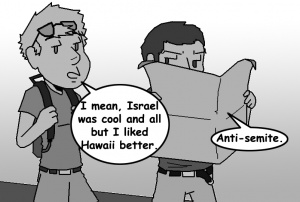 | An inaccurate etymological misnomer. In current widespread use to demonise people deemed to be threatenting to cherished Judaic official narratives and to close down rational debate. |
| "Conspiracy theory" | 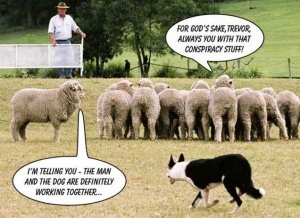 | Declassified CIA memo# 1035-960 ("Countering Criticism of the Warren Report") reveals that this phrase was deliberately given associations of craziness, as though conspiracies do not happen. It is routinely used by the corporate media in their efforts to discredit suggestions that contradict official narratives. As with other enemy images such as "terrorism", it is only used on this site inside quotation marks. |
| "Extremism" | 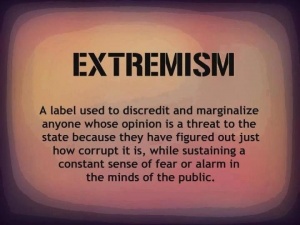 | "Extremism" is an enemy image used to designate ideas which the speaker perceives as threatening or otherwise unwelcome, for example if the commercially-controlled media are describing any economic value sets other that neoliberalism. The phrase has a tenuous meaning in law, but is being used as a replacement for the more old-fashioned word "terrorism". |
| "Fake News" | 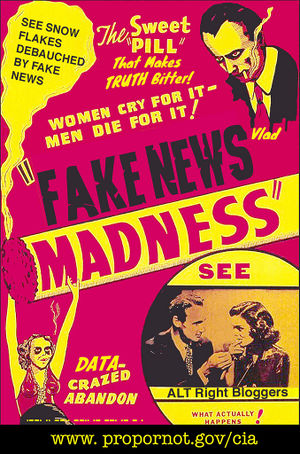 | "Fake news" is a modern word for "propaganda", a term which was itself more or less replaced by "public relations". It was launched by the commercially-controlled media in late 2016, in an effort to try to tackle the decreasing confidence in the US public in corporate media. Originally, the phrase was "fake news website", an attempt to tarnish websites with an air of unreliability. As of 2018, the campaign seems have have backfired, with fewer people than ever trusting corporate media, and more US citizens than ever aware that the deep state manipulates the news headlines to suit its deeper purposes. |
| "Holocaust Denier" | 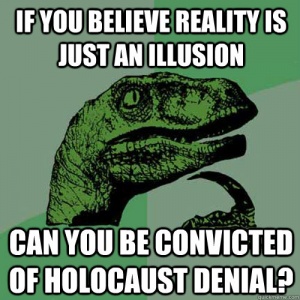 | A "Holocaust Denier" is a demonising label applied by The establishment to anyone who publicly questions any of the three fundamental tenets of 'The Holocaust' |
| "Lone nut" |  | "Lone nuts" feature repeatedly in official narratives of assassinations. The rapid placing of blame provides closure to what might otherwise result in inconvenient and potentially damaging investigation of deeper forces at work, while providing a chance to stir up strife by inciting factionalism. The 'nut' aspect means that a rational explanation is not required, while the 'lone' aspect conveniently explains the lack of any supporting documentary evidence. |
| "National security" | 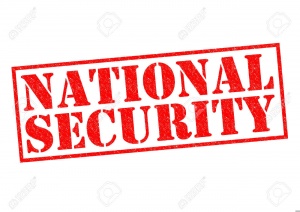 | Like the idea of 'Patriotism', the notion of 'National Security' is designed to bind all members of a society together. It evokes a psychological frame for the abdication of personal responsibility to the nation state. In the 21st century, the concept is repeated like a mantra in en effort to justify ever more opacity in the workings of government. |
| "Terrorism" | 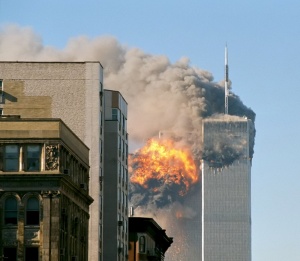 | The concept of "terrorism" lacks a clear definition, various states have codified the impossibility of "state terrorism" - i.e. excluding a priori the possibility that the term can be applied symmetrically. i.e. someone who uses identical methods to attack a government-designated "terrorist" is not another terrorist, but a "counter-terrorist". These fundamental points are almost never mentioned a commercially-controlled media more interested in exploiting this enemy image to promote anger and fear. |
| "The Holocaust" | In its capitalised form "The Holocaust" refers in the Western world to the treatment of the Jewish populations of Germany and German occupied territories during WW2 (1939-45). Its use in this format stems from about the mid-1960's. | |
| Anglo-US-NATO | 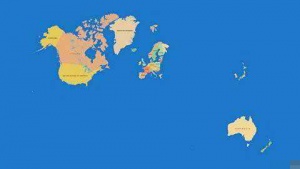 | An acronym that encapsulates the politico/cultural/ethnic make up of the elites behind the drive to a uni-polar, globalised world politics under the hegemonic control of these elites. Its anodyne, 'for public consumption' analogues are: 'International Community' and 'Community of Democracies'. |
| Cognitive infiltration |  | A neologism coined by Cass Sunstein illustrating how to undermine theories and groups that the Establishment considers wrong or otherwise harmful |
| Consensus trance | 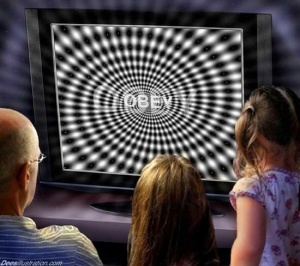 | Probably coined by Charles Tart, this phrase indicates a collective agreement not to let objective reality (such as the finite nature of fossil fuels or mendacious behaviour of particular individuals) to impinge on a shared belief system, generally more or less in agreement with the official narrative. |
| Deep politics | 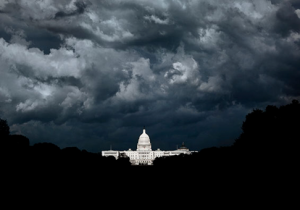 | A phrase coined by researcher and academic Peter Dale Scott to describe the hidden realities which underlie the small proportion of political matters which ever become public knowledge. The affairs of the deep state, some understanding of which is essential to begin to grasp the significance of deep events. |
| Deep state | 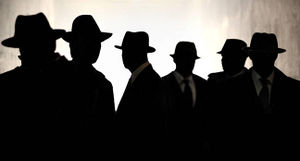 | A deep state is a network of individuals and groups which are in de facto charge of a national government, and which use the democratically elected government as a front, providing plausible deniability and allowing covert control. On matters of deep political importance, the public machinery of government is routinely subverted on the say so of deep politicians. |
| Deep state milieu |  | Deep state milieux are informal, clandestine gatherings to meet and arrange business. These organs of the deep state are created and governed by deep politicians. Like criminal syndicates, some are ephemeral, some perennial. They have varying procedures and protocols, but are generally characterised by the secrecy required by agents of the deep state. |
| Enemy image |  | The term "Enemy image", promoted by Marshal Rosenberg, refers to a view of a person or people which is influenced by animosity, and as such hampers reconciliation and real communication. The successful manipulation of large groups of people (e.g. the general public) has often been achieved through the nurturing of their prejudices and fear through such images. |
| False flag | 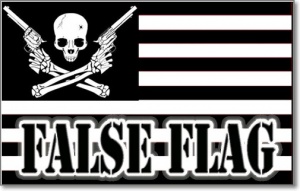 | False flag attacks are actions carried out in ways calculated to deceive the victim as to the nature of the perpetrator. Historically, these often involved flying literal flags, e.g. from a ship, or wearing uniforms. The procedure has been used as a standard way to try to justify starting a war. Most recently, perhaps the most common false flag in Western nations have been bombs attacks blamed on Muslims designed to fuel fear and promote the "war on terror". |
| Limited hangout | 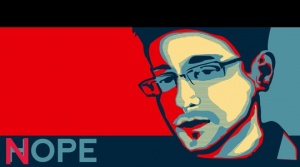 | A limited hangout is a propaganda technique of displaying a subset of the available information. It misdirects an incautious audience, because information needs a context for correct interpretation. Subtly omitting information changes the interpretation of the surrounding information. Th commercially-controlled media is a form of limited hangout, although since they also modify information, Modified limited hangout may be a more appropriate term. |
| Official narrative | 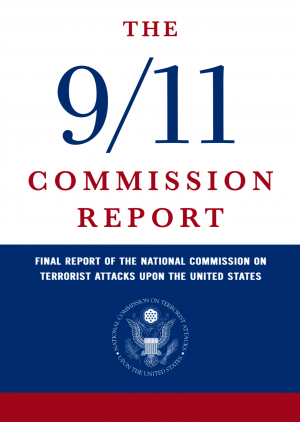 | The "Official Narrative" is the cover story of "the powers that be". On Wikispooks this mean the story intended for citizens of the so-called 'Western Democracies'. This could be the truth, but the term is usually used for cases in which it is a veil over something more sinister. |
| Official opposition narrative | The Official Opposition Narrative is an alternative story spun by The Powers That Be, to deceive people who dissent from the official narrative. | |
| Operation Mockingbird | 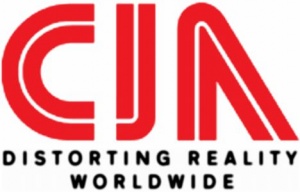 | Operation Mockingbird is a CIA project started in the early 1950s to control the corporate media, and has been so successful that this site refers to them as the "corporate/controlled media", to contrast with independent publishers on the internet. The implications for Wikipedia's policy of deeming big media a "reliable" and "notable" are obviously dire.| |
| Premature death | 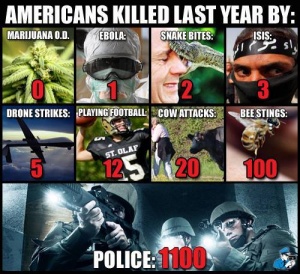 | The label "premature death" is used to refer to deaths which are not provably murder or assassination, and includes several cases where the official verdict is "suicide". |
| Spook |  | Used on Wikispooks as a colloquial term for spy but with wider connotations encompassing people whose primary occupation may be in any area of industry, commerce, politics, the media etc., but who also acts as an agent/informant of the secret intelligence agencies or the security services generally. |
| Strategy of tension |  | The strategy of tension is an umbrella term used for longer term campaigns of operations by governments aimed at destabilising or unsettling target populations or states, for example a series of false flag attacks. |
| The Establishment | 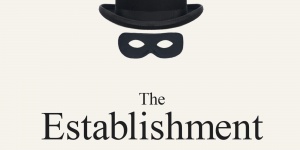 | The Establishment is used in a rather general way on Wikispooks to refer to the (often deliberately unclear) set of relationships, figures and organisations which make up the socio political status quo. The Establishment's official (for public consumption) opinion is, by definition, the "official narrative" |
| Zionist Occupied Government | A government which is heavily influenced by the Zionist world view. It can also denote Jewish membership of a government which is grossly out of proportion to the Jewish population of the country as a whole. |
Related Document
| Title | Type | Publication date | Author(s) | Description |
|---|---|---|---|---|
| Document:Glossary of Open Politics | glossary | 1 January 2007 | Peter Dale Scott |
Many thanks to our Patrons who cover ~2/3 of our hosting bill. Please join them if you can.
| ||||||
|





